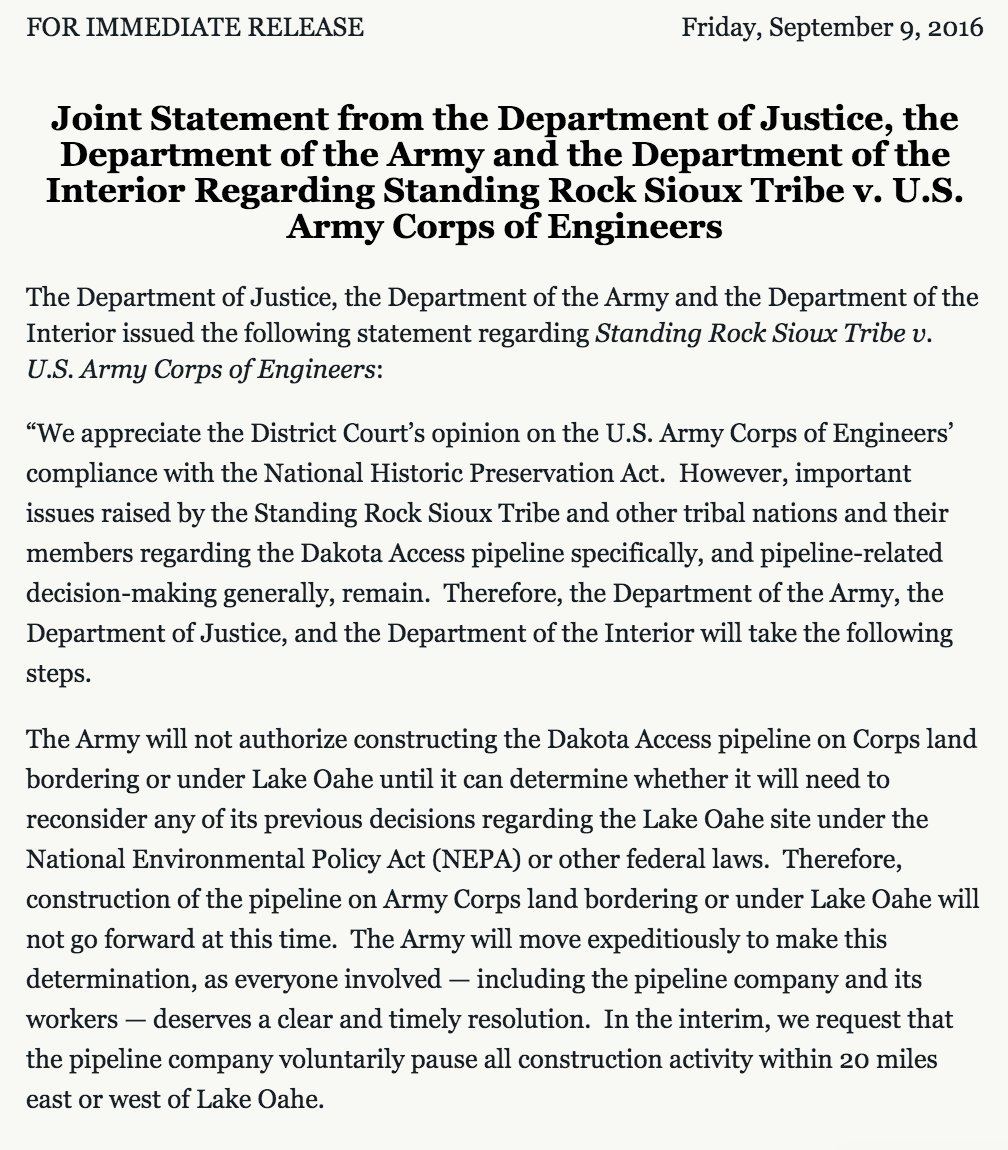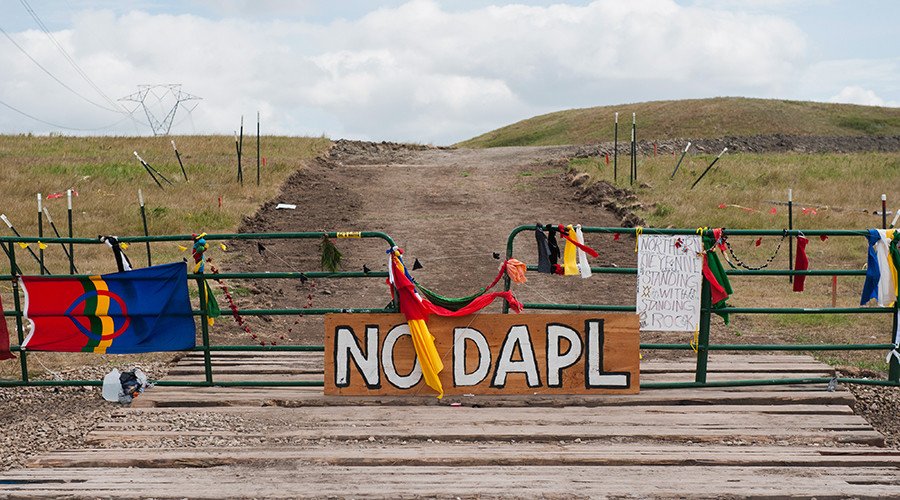Court
denies Sioux tribe request to halt Dakota Access pipeline
construction
9 September, 2016
A
federal judge has denied the Standing Rock Sioux tribe’s request
for a temporary injunction to halt the construction of the Dakota
Access pipeline.
The Obama administration later issued a statement
halting construction on the pipeline.

In
a one-page ruling issued by US District Judge James Boasberg in
Washington, DC on Friday, described the government’s relationship
with the tribes as being “contentious and tragic.”
The
judge said the Army Corp of Engineers “has likely complied with the
NHPA (National Historic Preservation Act) and that the Tribe has not
shown it will suffer injury that would be prevented by any
injunction."
Judge
Boasberg ordered the parties to appear for a status conference on
September 16, according to the Associated Press.
Just
moments after the ruling, the Justice Department issued a statement
halting construction on the pipeline on "land bordering or under
Lake Oahe."
In
its lawsuit filed in August, the tribe had challenged the Army Corps
of Engineers' decision to grant permits at more than 200 water
crossings for Dallas-based Energy Transfer Partners' $3.8 billion
pipeline.
US Justice Department and Army halt construction on North Dakota oil pipeline despite judge’s rule against tribe
They
argued the projected violated several federal laws, including the
National Historic Preservation Act, and will harm water supplies. The
tribe also says ancient sacred sites have been disturbed.
The
ruling said that "this Court does not lightly countenance any
depredation of lands that hold significance to the Standing Rock
Sioux" and that, given the federal government's history with the
tribe, "the Court scrutinizes the permitting process here with
particular care. Having done so, the Court must nonetheless conclude
that the Tribe has not demonstrated that an injunction is warranted
here."
A
lawyer for the tribe says the ruling will be appealed.
The
Standing Rock Sioux's tribal historian told AP the judge’s decision
to deny a temporary stop of construction on the pipeline gives her “a
great amount of grief.”
LaDonna
Brave Bull Allard, who also has been a part of the protests which
began in April near the North Dakota reservation, told AP that the
tribe will "continue to stand" and "look for legal
resources," as well as continue to protest peacefully.
The
tribe had achieved a temporary stop work order on Tuesday ahead of
Friday’s ruling after arguing that sacred sites in North Dakota had
been bulldozed at the weekend. The desecration came a day after the
tribe had identified the sacred sites in court papers as part of
their lawsuit against the Army Court of Engineers.
Sioux tribe wins partial halt to Dakota pipeline in federal court #NoDAPL
Sioux
tribe wins partial halt to Dakota pipeline in federal court — RT
America
The
Standing Rock Sioux tribe’s request for a temporary stop work order
on the Dakota Access Pipeline has been granted by a federal judge.
Sacred sites in North Dakota were bulldozed over the...
The
1,172-mile pipeline project when completed would travels across four
states is expected to carry nearly half-million barrels of crude oil
daily from the Bakken oil fields in North Dakota. The pipeline would
travel through North and South Dakota, under the Missouri River,
through Iowa to an existing pipeline in Illinois.
Dakota Access pipeline: Iowans sue, while North Dakota calls in National Guard (VIDEOS) http://on.rt.com/7osp
The
tribe claims the Army Corps of Engineers fast-tracked approval for
the pipeline without properly consulting them.
Energy
Transfers Partners said they planned to have the pipeline completed
this year. In court papers, they argued stopping the project would
cost it $1.4 billion the first year, mostly due to lost revenue in
hauling crude.
"Investor
appetite for the project could shift and financing may no longer be
available," the company said, according to AP. "Construction
of the entire project would cease and the project itself would be
jeopardized."
 BuzzFeed News
BuzzFeed News









 Joe Catron
Joe Catron



 RT America
RT America









No comments:
Post a Comment
Note: only a member of this blog may post a comment.